Are you a parent looking for a reliable way to authorize a trusted caregiver to look after your child? Navigating babysitting arrangements can be tricky, but having a minor babysitting authorization letter can provide peace of mind and clarity. This helpful document ensures that your babysitter understands their responsibilities while also establishing a clear line of communication regarding your child's needs. Join us as we explore how to create an effective babysitting authorization letter and why it's an essential tool for any parent.
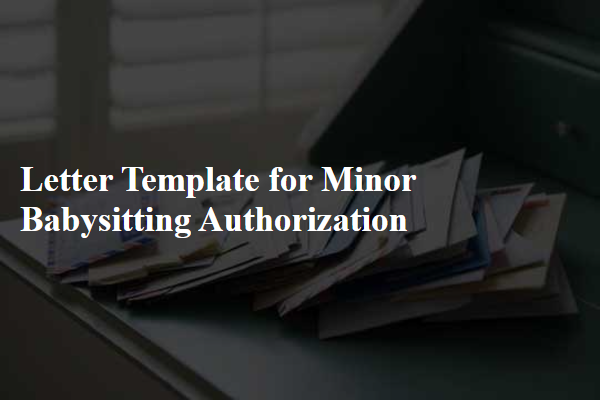
Guardian's full name and contact information
A minor babysitting authorization document serves to formally grant permission for an individual (the babysitter) to care for a child or children on behalf of a parent or legal guardian. Essential details include the guardian's full name, contact number, and address to ensure clear identification. The document should outline the babysitter's full name, qualifications, specific dates of care, and any emergency contacts or medical information pertinent to the child. It is also beneficial to include permissions regarding transport, medical treatment, and specific instructions related to the child's needs. This formal authorization ensures accountability and clarity in the childcare arrangement.
Babysitter's full name and contact information
Minor babysitting authorization indicates permission granted for the supervision of children. A babysitter's full name documents their identity, while accurate contact information (address, phone number, and email) ensures accessibility in emergencies. Important details such as the date for which the authorization is valid, the names of the children involved, and parental signatures authenticate the arrangement, providing legal clarity. Authorizing minors can also include stipulations regarding any medical conditions, allergies, or specific caregiving instructions that are crucial for comprehensive care during the babysitting period.
Child's full name and date of birth
Minor babysitting authorization allows caregivers to supervise children in the absence of parents or guardians. Essential details include the child's full name, for identification purposes, and date of birth, ensuring age-appropriate care and supervision during the babysitting period. This document typically specifies the duration of the authorization, activities permitted, and emergency contact information for parents, ensuring the safety and well-being of the child. Additional information may include health considerations, allergies, and preferred emergency procedures, providing babysitters with a comprehensive understanding of the child's needs.
Duration and specific dates of babysitting authorization
Minor babysitting authorization provides legal consent for a responsible individual to care for a child under a specific timeframe. The authorization typically specifies durations, such as weekends or school holidays, particularly from 1st to 15th July 2023. The authorized person, often a family friend or neighbor, must be of appropriate age, commonly 16 years and older. This document may include details about emergency contacts, medical information, and any allergies the child may have, ensuring the caregiver is well-informed during the designated periods. Clear stipulations regarding responsibilities and expectations enhance safety and security, prioritizing the child's well-being.
Emergency contact details and medical information
Babysitting authorization for minors requires careful consideration of emergency contact details and medical information. Parents or guardians must provide full name, address, and phone number of the responsible adult, typically a family member or close friend, to be contacted in case of emergencies. Additionally, medical history, including allergies (such as peanut or shellfish allergies), chronic conditions (like asthma or diabetes), and current medications, must be documented to ensure the babysitter understands potential health risks. Alongside this, consent forms should outline permission for treatments that may arise during an emergency, ensuring that babysitters are equipped to handle urgent medical situations responsibly.

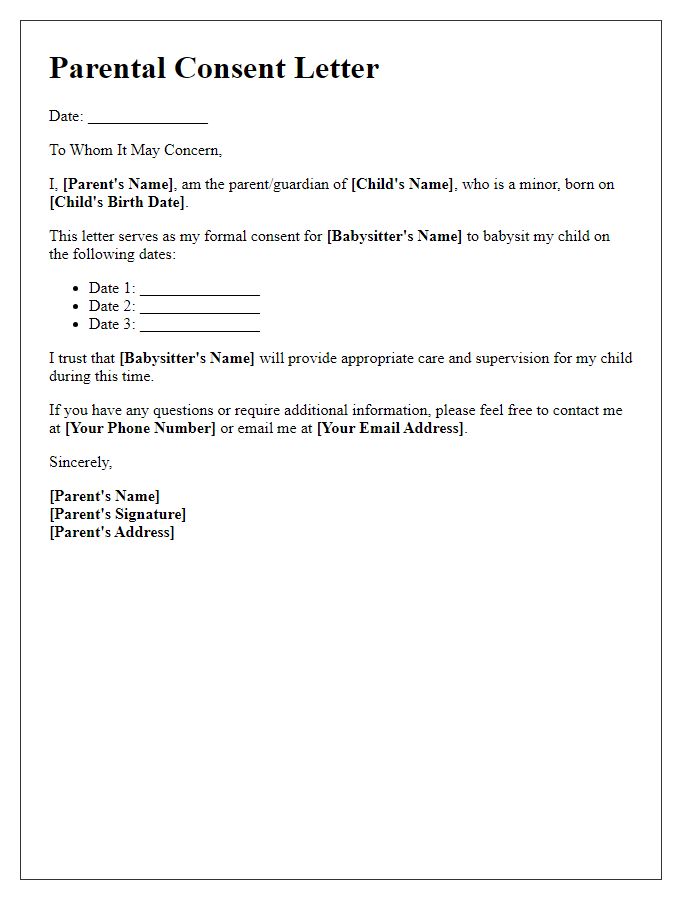
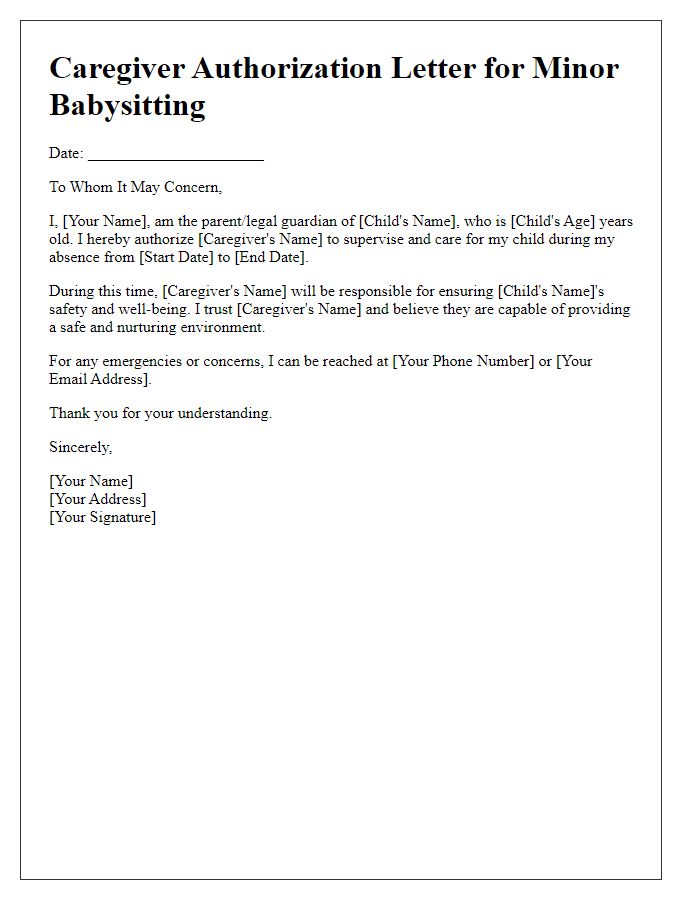
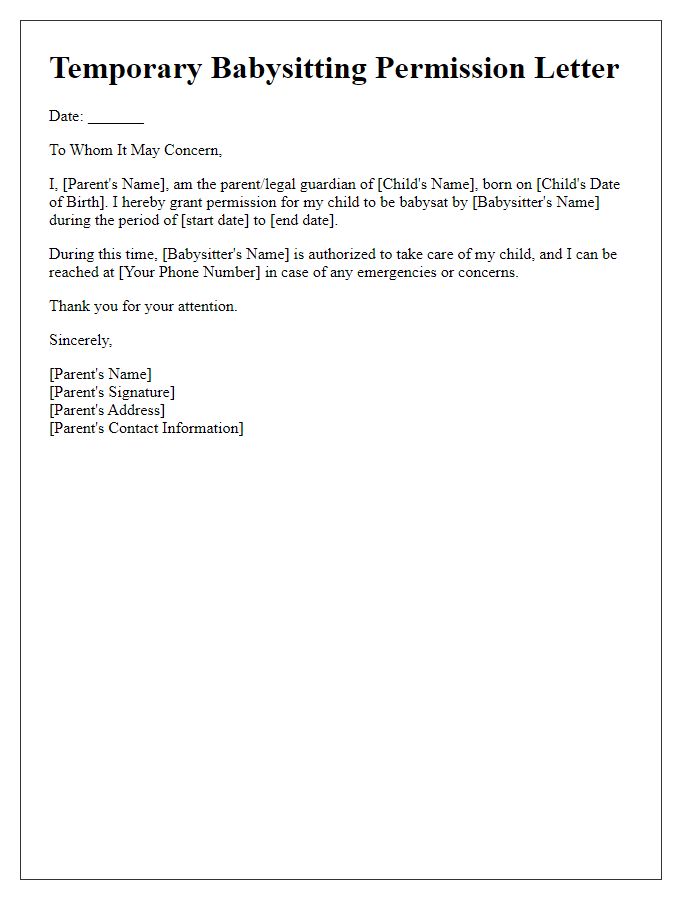
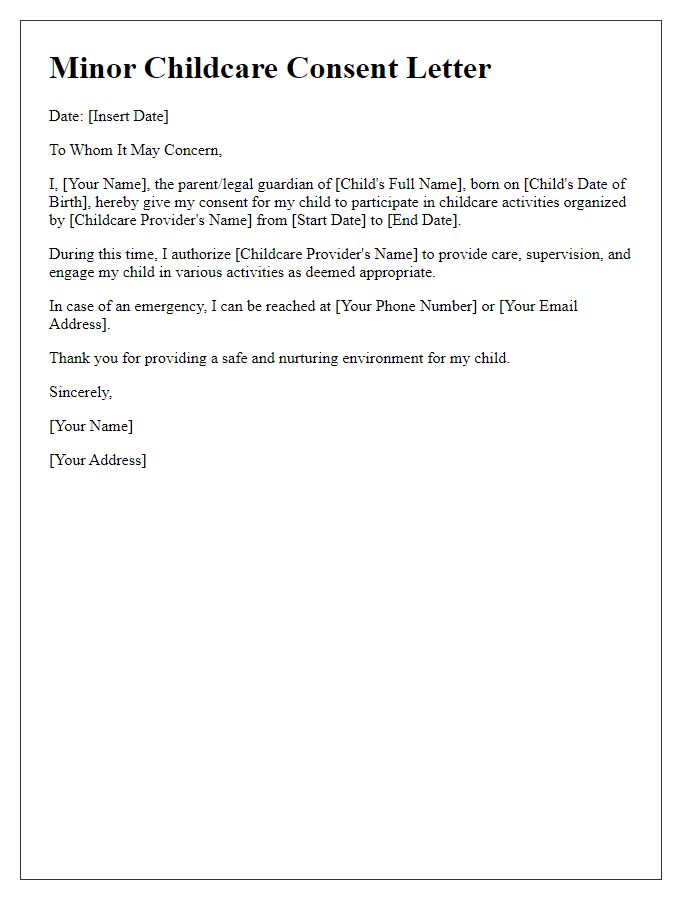
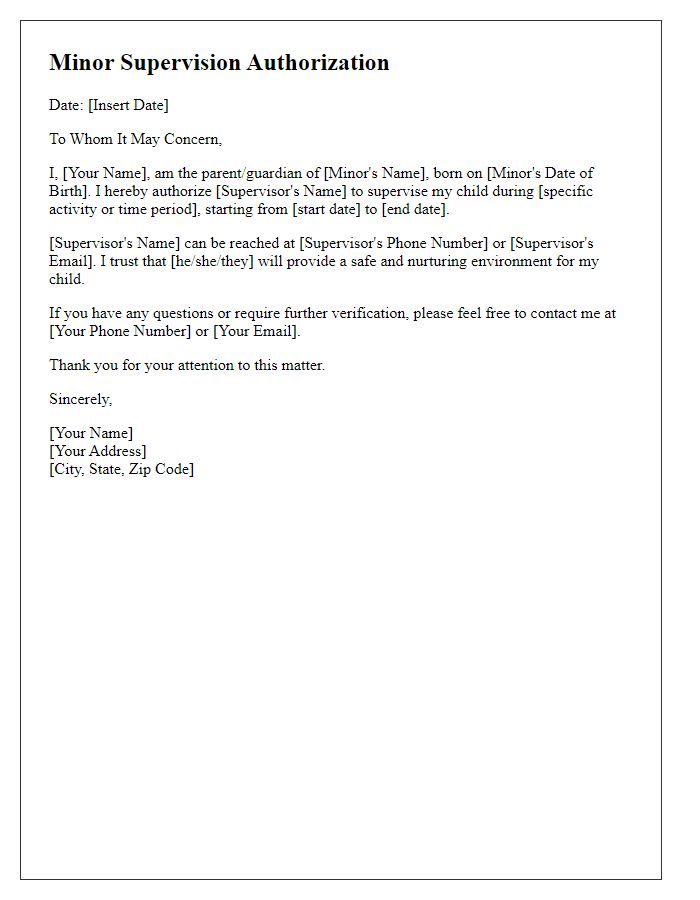
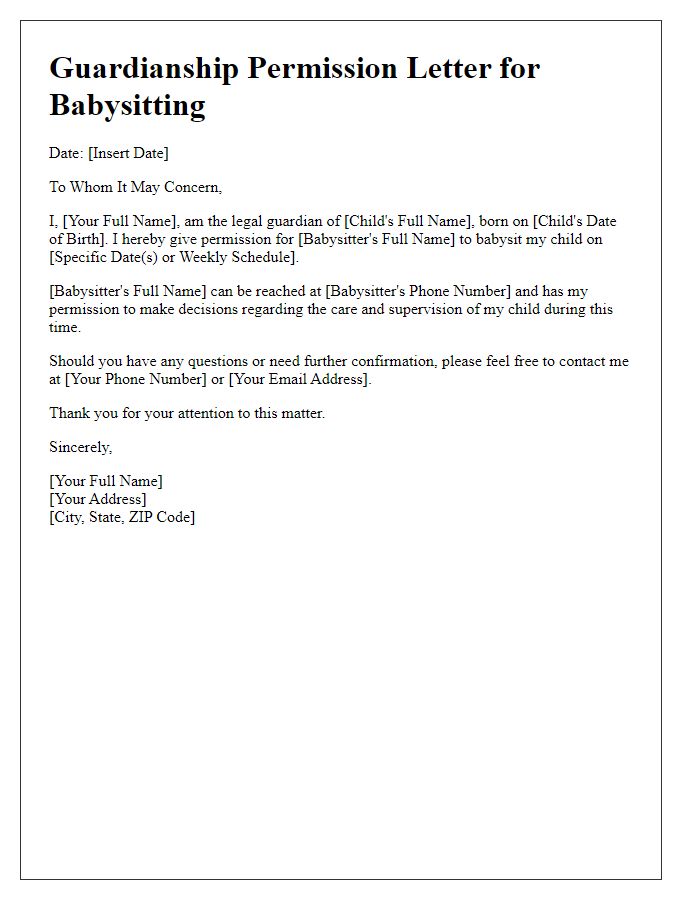
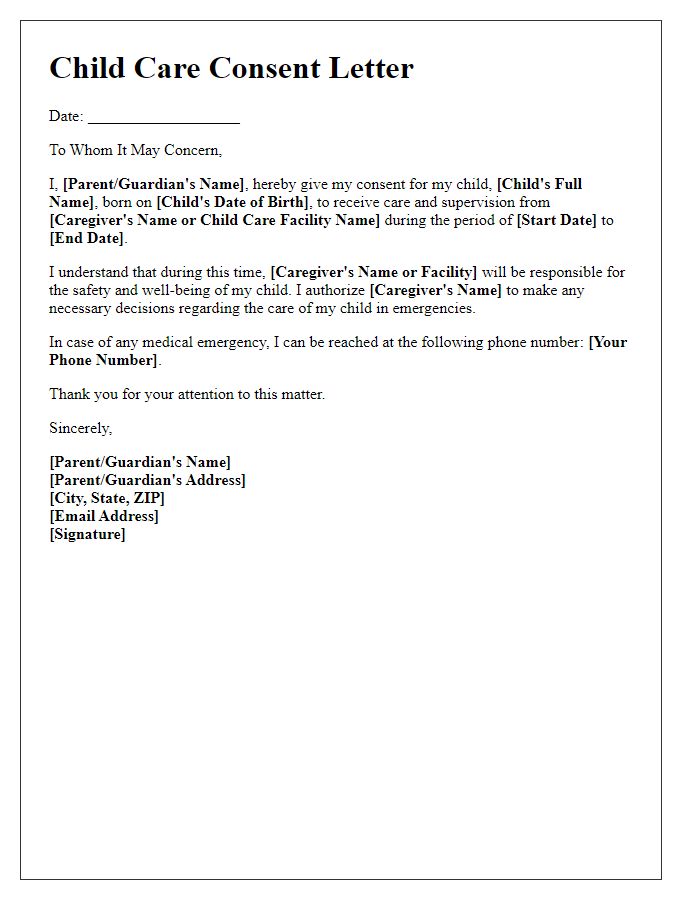
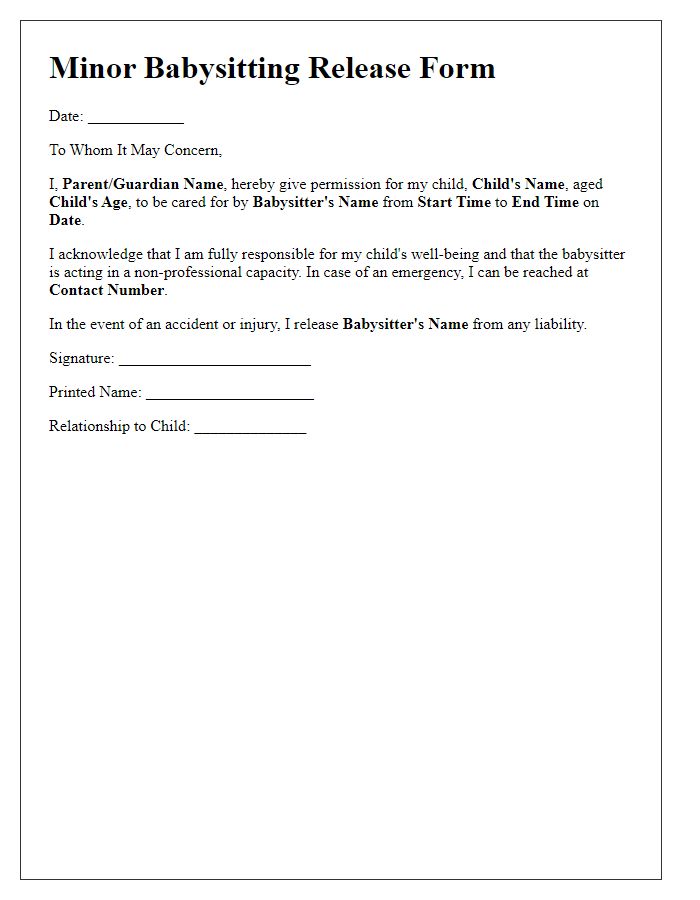
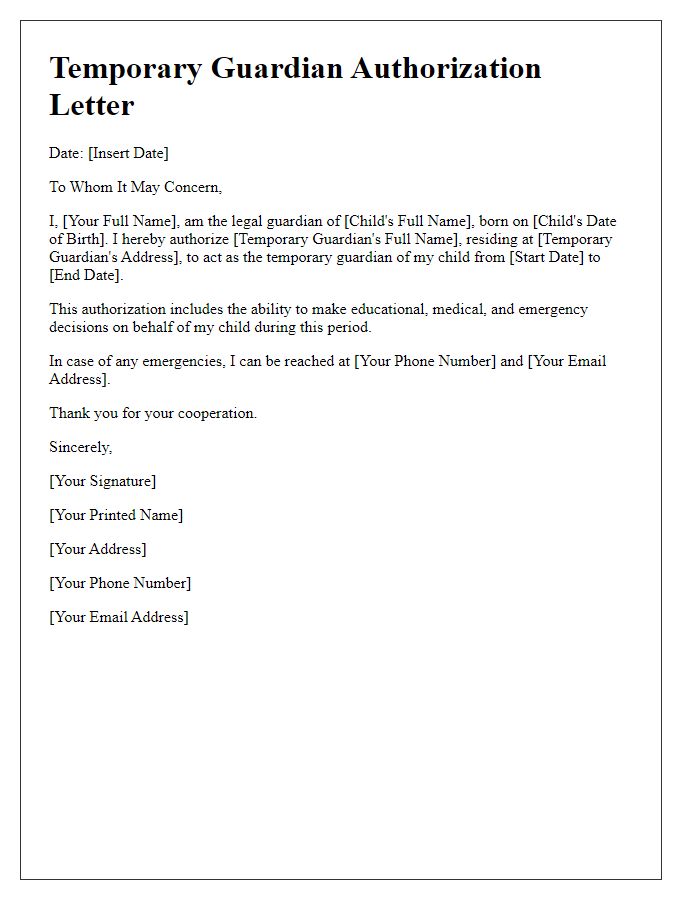
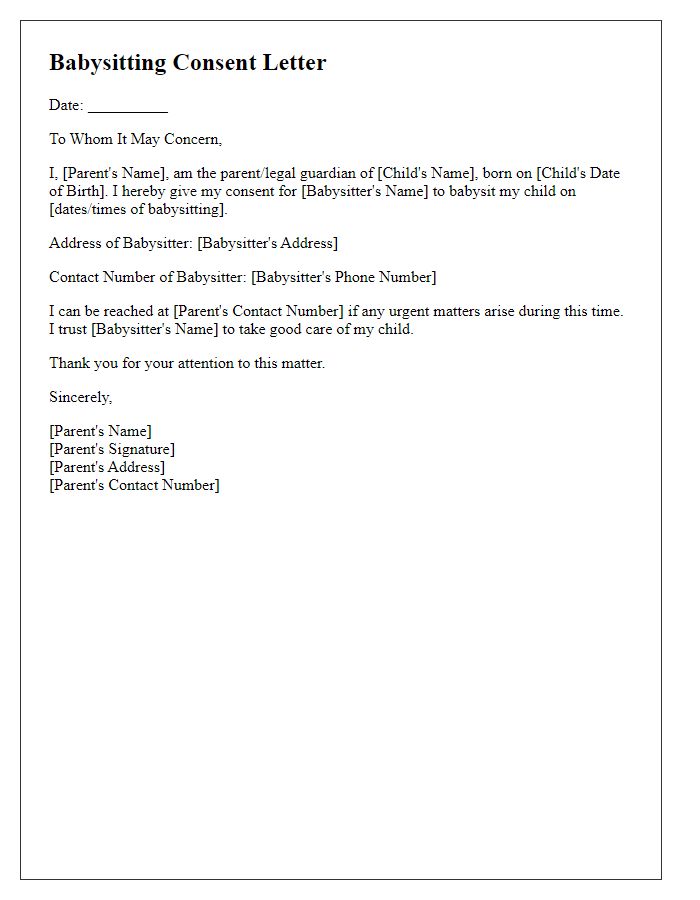

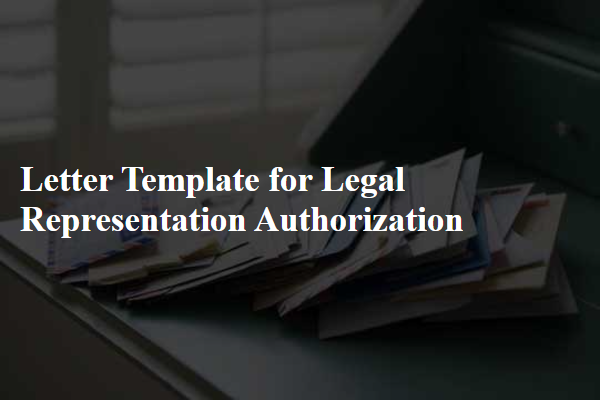
Comments